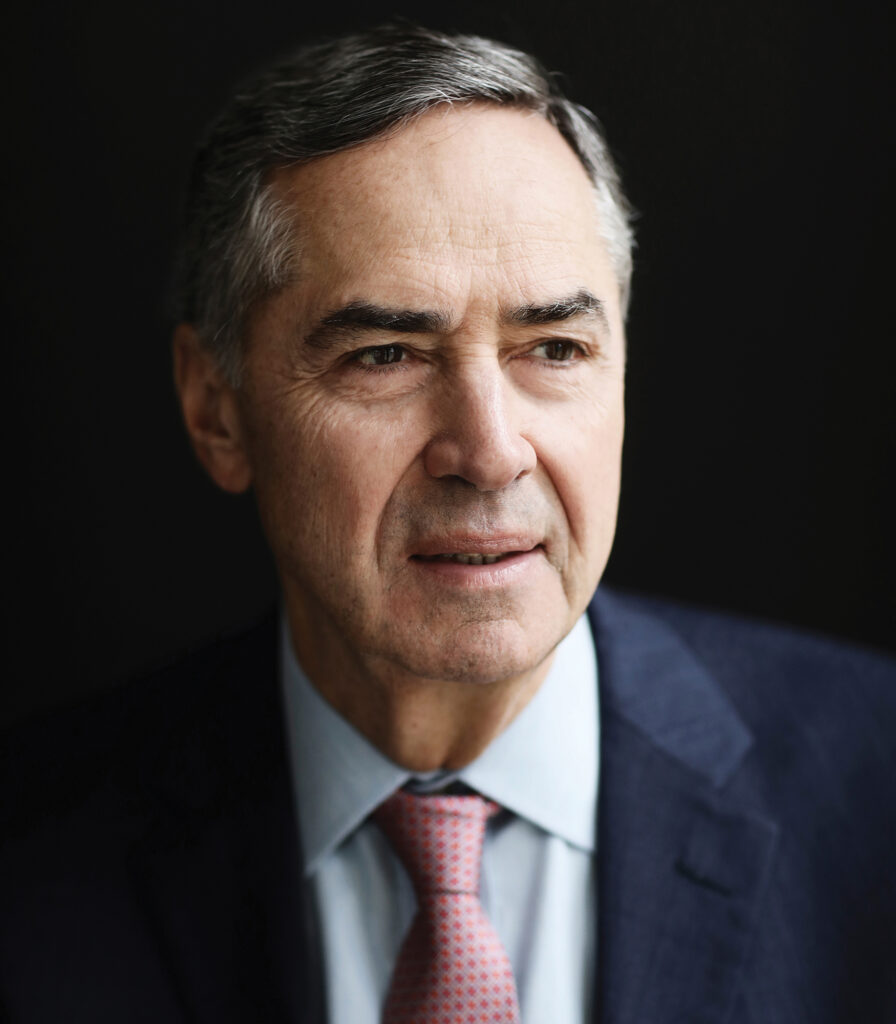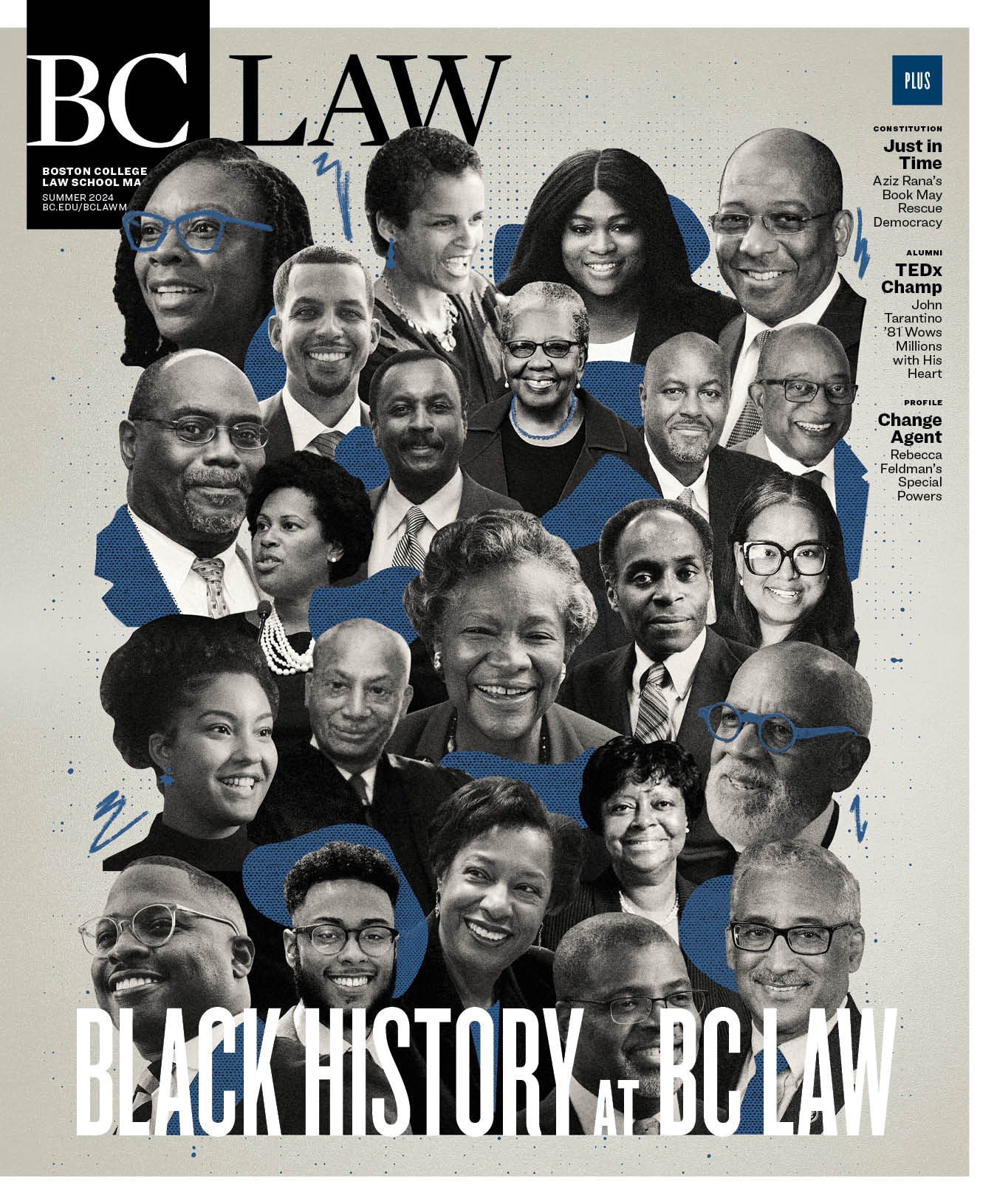High courts worldwide are facing a rising tide of anti-pluralist governments and lawmakers who weaponize misinformation to advance authoritarian objectives. Few jurists understand the urgency of this democratic fragility as well as the president of the Supreme Federal Court of Brazil, Justice Luís Roberto Barroso. During a visit to Boston College Law School in March, he spoke with Dean Lienau about what he calls the erosion of democratic foundations, the judiciary’s responsibility to advance social justice, and the importance of institutional legitimacy.
LRB: Constitutional democracy was the winning ideology of the 20th century—it defeated all the alternatives like communism, fascism, Nazi-ism, military regimes, and religious fundamentalism. But constitutional democracy is a two-sided coin; on the one side we are talking about popularity, elections, and the rule of the majority. On the other is limited power, the rule of law, and the protection of fundamental rights. This is a very important balance—and most countries have a supreme court to arbitrate tensions between these two sides.
But now, we are in a scenario that’s been described as an erosion of democratic foundations in different parts of the world. We are watching the rise of authoritarian populism, which involves the division of society into us and them—and a claim that only our side represents the people—which is terrible, because democratic societies are plural.
So, authoritarian populists are anti-pluralistic and also anti-institutional, claiming the institutions [that might question them] represent the elite. They use direct communication to their supporters, bypassing intermediary institutions like congress and the press, and they target the supreme court because it can limit their power, as it has in Brazil.
Also, these far-right populists use AI, digital platforms, and social media to disseminate misinformation, hate speech, and conspiracy theories. And, in Brazil, the supreme court has played a decisive role in containing [this problem.]
One example is how the court, in response to populists’ denial of the gravity of the pandemic, ordered the elaboration of a vaccination plan and even mandatory vaccination; we saved many lives. On a more institutional front, we confronted the ways far-right groups in Brazil were using digital platforms by launching an investigation against them for disseminating fake news and saying elections were rigged.
OL: When it comes to these issues, the last few years have made clear that the US is not immune to broader trends that you see globally towards authoritarian populism and efforts to erode the rule of law and constitutional democracy. And the Brazilian supreme court, in particular, has provided important insight into what the role of the courts might be. I think that is essential in that it demonstrates the ways in which the constitutional system within the US could be capable of addressing broader social and economic problems.
Constitutional democracy is a two-sided coin; on the one side we are talking about popularity, elections, and the rule of the majority. On the other is limited power, the rule of law, and the protection of fundamental rights. This is a very important balance.”
Supreme Federal Court of Brazil, Justice Luís Roberto Barroso
LRB: Traditionally, constitutional theory has settled on the idea that the supreme court and constitutional courts play a countermajoritarian role, meaning that they can invalidate acts from the legislature and from the executive branch. But the way I see it, the courts in different parts of the world—and I think even here in the US—play two other roles. One is the role that I call representative. In theory, I would say you can legitimize decisions by vote, and you can legitimize decisions by the way you reason. So, the representative role is played by courts when they act to satisfy demands of society that are in the constitution or in the legal system, but have not been properly taken care of by the legislature. And there is a third more controversial role I call the enlightening role. In very rare occasions, courts play this role of pushing history in the right direction, even against the will of the legislature and the majority of the people.
OL: Very interesting. You’re making explicit a reasoned basis for some of the work that these courts do, including in the US context. I’m curious, though: The judges themselves make the decisions about how to interpret and justify all of these things. But aren’t the courts also formed by a particular constitutional system—one that could, for example, privilege who counts as the majority or the ‘people’ to be represented? So, the good that might come of these approaches still feels very contingent as to place and time.
LRB: I have the same concern. Still, a supreme court doesn’t have the budget and it doesn’t have the army or the army forces. So, courts always depend on some sort of respect from society for legitimacy. The main constraint on a court is not losing its legitimacy. Since you don’t have the security forces on your side or have money, you depend on the other branches to have your decisions enforced. You need to have institutional respect and some kind of support from society, and that’s what gives you legitimacy to act. If you go much beyond where you could reasonably go, then you just lose your legitimacy—and probably your capacity for having your decisions enforced.





